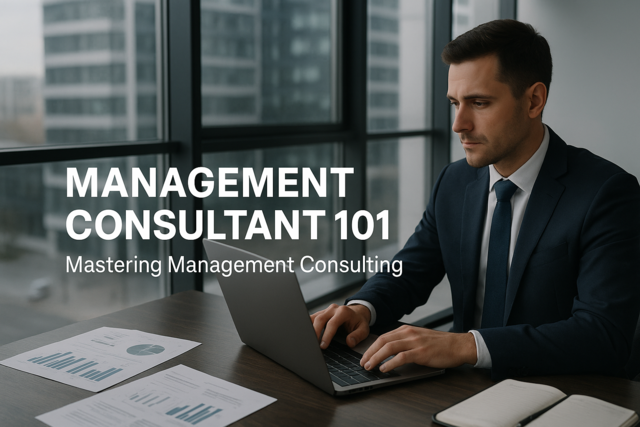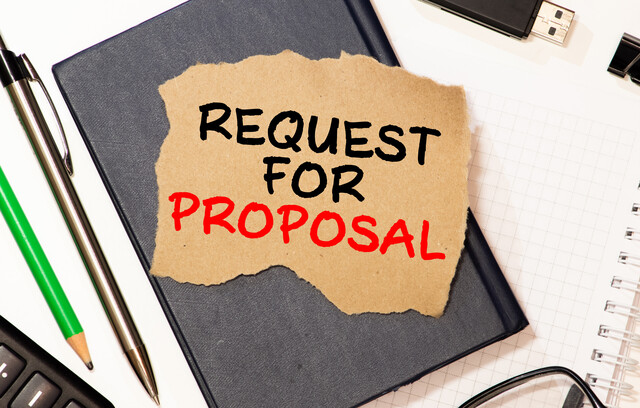Journalism Help: How to Interview and Take Notes
Now, we have come to the essence of journalism � interviewing and note taking. You've probably seen characters playing journalists in movies and on television and this is where they seem to settle into the hard work of the profession. Let us advise you on how to acquire these real-world reporting skills that will sustain you in the industry.
Interviewing
You have already learned the most important thing you could possibly need to know about interviewing � and that is the importance of being a good listener! The rest is, well, academic.
If it is possible, you should always try to schedule an interview several weeks in advance. Advise the person what the purpose of the interview is, so there are no surprises. That gives the interviewee time to prepare, and you, as well. It also shows that you respect they are busy and have a schedule to meet. Also, allow them to choose the interview location. Sometimes when a person is being interviewed in a friendly location, such as a popular coffee house, they tend to be more forthcoming and not as guarded as if you were to meet them at their place of business. While your intention is not to trick the individual, you do want to create a mood that is more conducive to an honest and open exchange.
Be polite � in your request for the interview, when you meet face to face, and as the interview winds down. Simple words like "please" and "thank you" up the ambiance and lower the tension � and no matter what you might think, people that are asked to sit down for an interview are always a bit tense. Having seen enough "gotcha" interviews on television, they will come into it with the idea that they will be close-mouthed, so as not to embarrass themselves or the organization they represent. If a potential interviewee does not respond to a request for an interview � and this is wholly possible � do not give up. If they do not respond to emails and phone calls, and particularly if they are a public official � but all are fair game � then arrange to bump into them in person. Introduce yourself at that point, hand them a business card, explain that you have been trying to find a time to sit down and talk with them and � politely force the issue. If the potential interviewee says they will contact you, politely remind them of the number of times and different ways you have already sent them a request and ask if they couldn't look at their calendar and set a time while you are both there.
The interviewee might simply throw caution to the wind and invite you in for the interview right then and there, so be prepared for this eventuality, as well. As a matter of fact, as a journalist it is your job to always be prepared anyway!
If you are meeting an interviewee for a planned or prearranged dialogue, be prepared! Show up well in advance to scout a location that offers some privacy. Make sure you have everything you need -- working pens, notebook paper, questions that have been forged from research and reflection, a tape recorder with new batteries � which you will, of course, request that you be permitted to use so you may tape the interview as a way to ensure that you have captured the interview correctly. However, if the interviewee politely refuses � perhaps begging off because he or she does not like the sound of her voice on tape or whatever reason � then abide by their wishes. If you make an interviewee uncomfortable at the outset, the interview will likely not go well.
Do your homework! If you are interviewing the city manager, know what his responsibilities are and his track record. Research some of the problems that this arm of the city government has been experiencing, and create questions that allow the interviewee to respond without being defensive. Remember, you are the public's eyes and ears and they want an honest response � not one couched in defense and ill thought out. Remember, however, that during the interview, leave yourself open to following a line of questioning you hadn't foreseen, or that was opened by a comment the interviewee made. In other words, be organized and prepared, but be flexible. Those are all marks of an excellent interviewer!
Dress professionally, and you will be treated that way. Have an icebreaker planned, such as the perennial topic of the weather, or perhaps the status of the hometown sports team, or something that seems appropriate for the individual with whom you will be speaking. This will help to put everyone at ease. Show the interviewee that you are a trained listener � because you are. Smile, nod, and comment where appropriate, without sidetracking the interview.
As unobtrusively as possible, inform the interviewee that all material discussed will be on the record (there are times � such as with the use of a confidential informant � you may bend this rule, but that would come after experience in the field as a journalist, when you are chasing those really big stories). It is not the place of the interviewee to provide a list of questions, so be sure they understand this in advance. Also, never give permission for them to read the story in advance of publication, because that is also unprofessional. At the end of the interview, thank them politely and then begin the process of crafting the story, without any further input on their part.
More Advice About the Interview Itself
Here are some ideas that should help frame every interview and become a part of your interviewing repertoire. First, when you sit down, and the conversation is getting underway, always ask them to spell their name for you correctly, so there will be no mistakes. Include surnames and titles. Second, request contact information and explain that it will remain private, but you want to be sure you can call or write if you need clarification or have further questions. Be sure to copy this information accurately.
Now we are ready to pace the interview itself. Start with easy questions to set a pleasant and conversational tone. A journalist creates questions that are open-ended which allows the interviewee to speak more broadly on a subject � versus asking yes and no questions that will get the journalist nowhere. Do not try to fill every silence with conversation. Sometimes a pause or two gives the interviewee a chance to collect their thoughts, and maybe expound on a subject before moving forward.
Still, you should try to ask the important questions toward the front of the interview, even if they are not the first queries. This will ensure that you get a wealth of good material in case the interview has to be cut short for some reason. And remember, create questions that allow the interviewee to do the bulk of the talking. You're not there to share your experiences; you are there to chronicle theirs!
Sample questions that jog the speaker include such things as: "Why do you say that?" or "How do you know that?" or "How can I explain that so my readers will understand?"
End your interview with the following questions. "Is there anything else you want the public to know, or we need to discuss?" and "Is there anyone else who would have something to add to this story that I should meet with?" Always let the interviewee have the last word. Thank them for their time -- and then prepare for more work.
Some Final Words on Interviewing
-
Remember to allow the speaker some latitude to stray off a subject � there just might be a better story lurking underneath!
-
Do not allow the speaker to hijack the interview � stay in control!
-
Give the speaker time to answer a question completely. Request clarification when necessary. Probe for details.
-
Sometimes you have to ask probing questions that the interviewee may find off-putting. Find ways to ask without being offensive to the best of your ability. Remember, an interview is partly about getting at the truth, but you needn't be hostile or plan a sneak attack � that is simply unprofessional.
-
Use a word other than "interview" when requesting a meeting. Interview is pretty formal and it has a tendency to put people on guard.
-
Be conscious of body language. If a person becomes fidgety when a question is posed, it probably means there's more to the story than they are wanting to tell � and that is the true story you are seeking!
Note taking
A journalist is a note taker by trade. There are some dos and don'ts of the craft that should help the beginning journalist as they develop this skill. Some basic tricks of the trade include:
-
Verbatim note taking is not effective, or even possible, over the long term. You must learn to create a note taking system that works for you. For example, perhaps you can make up a list of abbreviations that you will recognize over time, such as using the letter "S" to stand for "Subject," or the person being interviewed. So a note might look like this: S said not enough $ in budgt. to support plagrd. Meaning: The subject said there is not enough money in the budget to support building a new playground.
-
Learn to leave yourself notes in your note taking that indicate you might need clarification � and didn't get the gist of the idea � maybe put a question mark or exclamation mark in a triangle � to indicate you need to stop and go back at some point.
-
Taking copious notes is good. There is something about writing down words and ideas helps to cement them in your mind. Now, taking notes while giving the speaker adequate attention is an art form in itself � remember, you do not want to be rude, but you need to write this stuff down! So remind the speaker that you are taking notes to ensure accuracy, and assure them their commentary is very interesting to you, as a reporter.
-
Use technology for note taking. Most people tend to carry around their laptops these days � and word processing is easier than long-hand note taking for many journalists.
-
Many experts say to leave a blank line between ideas. This will allow you to go back later and fill it in. They also suggest you paraphrase � a skill that you will perfect as time goes on.
-
Use graphic symbols to your advantage, as well. Arrows, outlining numbers and letters, shapes, shading � the longer you are a journalist, the more defined your note taking style will be, and the more comfortable you will be in using the style without thinking and double checking during the interview. For example, you won't need to ask yourself what the abbreviation �wk envir.' means. You will automatically know it means the phrase "work environment." You are sure to have dozens of abbreviations and symbols the further you get into your career.
There are different styles of note taking � some more formal than others. For example, some experts claim you should divide the page in half � putting facts and notes on one side and images on the other, leaving room for summaries at the bottom. There is some advantage to this, versus straight line-after-line note taking, because what you are doing is structuring the information while you are receiving it instead of having to go back at the end of the interview and hunt and peck for facts and opinions, versus mental images that might have driven the direction of the conversation.
Other Thoughts on Note taking
Listen closely to what the speaker is saying. Pay attention to the cues in their voices, body language, rate of speech, and more. If necessary, find ways to notate that in your running commentary. For example, if the speaker sounds edgy when discussing a topic � this should be expressed in your note taking. But how, without spending an extra moment writing the words "speaker edgy" or an abbreviation of such. Perhaps simply underlining the words that you've notated will serve as a visual reminder to you of this. Do not use an abbreviation or marking to mean more than one thing; then you will be confused and your personal note taking style will be useless.
Here are some examples of abbreviations you may want to start to insert in your practice note taking.
b/c � because
gvt � government
imp � important
w/ - with
+ - and
w/o � without
There are hundreds of abbreviations that are common to different industries. Do not be afraid to adopt them for yourself.
Mark information you think is especially important � perhaps with a star * or exclamation mark !


























